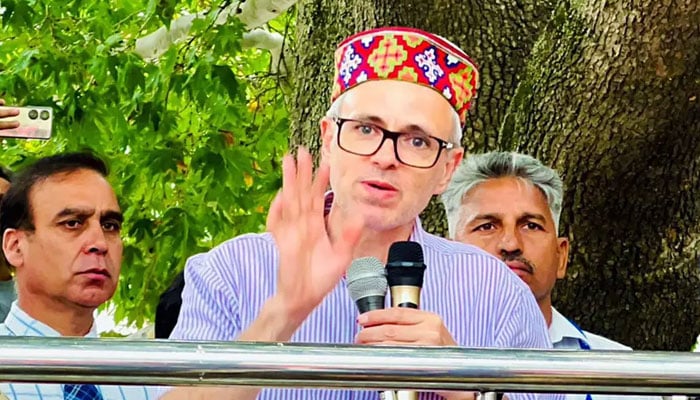SRINAGAR: Puppet Chief Minister of Indian occupied Jammu and Kashmir Omar Abdullah has acknowledged Pakistan’s diplomatic success in internationalizing the Kashmir issue amid ongoing hostilities between the two nuclear-armed neighbors.
In an interview with an Indian television, Abdullah stated that despite several changes in regional dynamics post-conflict, one constant has been Pakistan’s persistent efforts to bring global attention to the Kashmir dispute.
“Many things have changed due to the war, but Pakistan’s strategy to internationalize Kashmir has remained steady and it is working,” he said.
The situation escalated following the Pulwama-style attack in Pahalgam, after which India swiftly blamed Pakistan without presenting concrete evidence. Critics claim the incident was used as a political tool by India’s ruling BJP, which has been accused of pursuing a hardline Hindutva agenda. In a dramatic move, India announced the suspension of the Indus Waters Treaty, brokered decades ago with World Bank mediation.
Pakistan responded strongly, warning that any unilateral alteration to the treaty would be considered an act of war. Defense Minister Khawaja Asif declared that Pakistan would not allow its water lifeline to be compromised and vowed to target any structures threatening its flow.
On the nights of May 6 and 7, Indian forces reportedly bombed five locations within Azad Kashmir and Pakistani territory. In response, the Pakistan Air Force launched retaliatory strikes, downing five Indian aircraft, including three Rafale jets.
Further escalating tensions, India deployed Israeli-made Herop drones to conduct reconnaissance and attempted strikes, including one allegedly targeting the ongoing Pakistan Super League (PSL) event in Rawalpindi. Pakistan’s military countered the threat and launched precision strikes using JF-17 Thunder and J-10C aircraft, disabling several key Indian military installations, including airfields and S-400 missile defense systems.
Facing mounting losses, India reportedly appealed to the United States for a ceasefire. Through international diplomatic efforts, a ceasefire agreement was reached, with U.S. President Donald Trump confirming the development via social media.
In a subsequent statement, Trump expressed his commitment to working with both nations to resolve the long-standing Kashmir dispute.


Comments are closed.